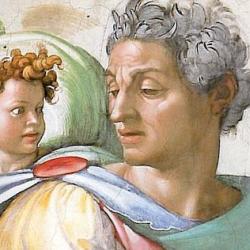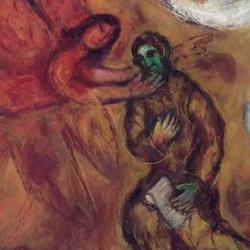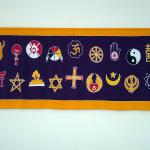There are several parallels between the story of Naboth’s vineyard (1 Kings 21) and the account of Hezekiah’s sickness and the visit from the Babylonians (2 Kings 20; Isaiah 38-39). First a list of the connections:
1) When Naboth refuses to sell his vineyard, Ahab lays down on his bed and turns his face (1 Kings 21:4). When Isaiah tells Hezekiah that he will die from his sickness, he turns his face to the wall, perhaps on his sick bed (2 Kings 20:2; Isaiah 38:2).
2) After Ahab has carried out his plot against Naboth, the Lord sends a prophet, Elijah, to confront him (1 Kings 21:17-24). While Hezekiah is sick, the prophet Isaiah comes unbidden with the message that he will die (2 Kings 20:1; Isaiah 38:1). The closer parallel, though, is in the following episode, where Isaiah comes unbidden to confront Hezekiah about his hospitality to the Babylonians (2 Kings 20:14-15; Isaiah 39:3-4).
3) In both cases, the prophet predicts a judgment on the house of the king. Elijah tells Ahab that his dynasty will end like the dynasty of Jeroboam and Baasha (1 Kings 21:21-24). Isaiah tells Hezekiah that the Babylonians will be back to seize the things they have seen in his house (2 Kings 20:16-18; Isaiah 39:5-7).
4) In both cases, the judgment is threatened for a future generation. When Ahab repents, Yahweh delays the destruction of his dynasty by a generation (1 Kings 21:27-29). Isaiah tells Hezekiah that the Babylonians will come after Hezekiah’s time, in the days of his sons (2 Kings 20:16-19; Isaiah 39:6-7), which leads Isaiah to conclude that the prophecy is good, since “there will be peace and truth in my days” (2 Kings 20:19; Isaiah 39:8).
The obvious point of these parallels is to highlight the contrasts between the two kings and their responses to disappointments. Ahab turns his face away in resentment that he cannot have what he wants; Hezekiah turns his face away to pray. As the stories continue, though, the two kings shift places somewhat: Ahab repents in sackcloth of his sin against Naboth; Hezekiah’s sin (if sin it is) is on any interpretation far less serious than Ahab’s, but his response to Isaiah’s rebuke concerning the Babylonians (if rebuke it is) is surprisingly nonchalant.
In 1-2 Kings, the literary effect of these echoes is partly to set up the reader for the account of Manasseh’s reign, where Ahab is mentioned twice (2 Kings 21:3, 13). That doesn’t work in Isaiah, since Ahab is not mentioned. In Isaiah, the contrast is more between Ahaz, the father of Hezekiah, and Ahaz himself.
It seems that there’s something more subtle going on with these parallels. Some riddle not yet solved.














